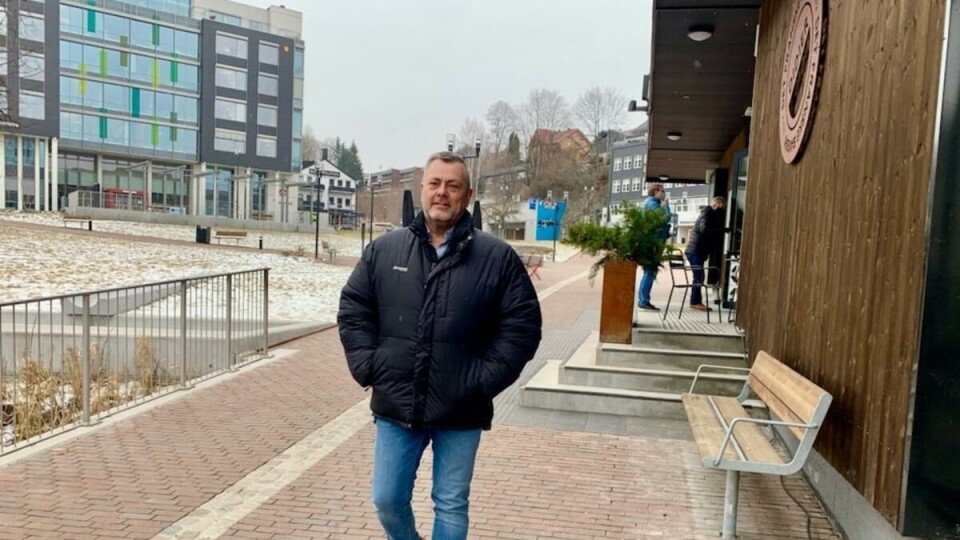
A record number of young people asking for help – Starting this week Studenttelefonen will be there for you 24/7
– It’s about corona, loneliness, tiny student housing and the frustration around this, says the project leader for Studenttelefonen. The helpline should be a low-threshold service for students.
The organisation Mental Helse has experienced an increase in number of inquiries during the corona pandemic, and this Monday they open a separate helpline for students. Project leader Vidar Torbjørnsen says they have wanted to do this for a long time.
– We’re excited to get started and to see how it is received and what kind of traffic we can expect. We hope it will be frequently used, Torbjørnsen says.
Studenttelefonen is a free, anonymous, and national low-threshold offer for students who need someone to talk to. Both the phones and the chat will be open from 5pm to 7am all days, it is open all night as a supplement to the services of the Student welfare organisations. Beyond this you can also use Hjelpetelefonen which is open 24/7.
Dramatic increase in number of inquiries
In 2020, 4,700 of the conversations on Hjelpetelefonen were about suicidal thoughts and plans, which is an increase from 3,000 in 2019. In the chats, the number of dialogues about the same theme increased from 1,750 in 2019 to 10,000 in 2020. According to Torbjørnsen, the average age on the chats fell from almost 30 to 21 years.
– Based on this, we believe that many of these probably are students, he says.
– It’s about corona, loneliness, tiny student housing and the frustration around this.
He adds that they get more inquiries from men on Hjelpetelefonen than earlier.
Lonely student life
According to Torbjørnsen, students of different circumstances reach out to Mental Helse for help. Many of them are experiencing that their pre-existing struggles are now worsened.
– Children of «curling parents» who have paved the way for their kids, and who graduated high school as exemplary students, can also experience really hitting a wall, Torbjørnsen says.
– The common feature is that younger people are struggling with loneliness. Many have moved and are sitting by themselves with black screens on Zoom.
He also points to lack of structure as a recurring problem, and that the economic situation is a significant challenge for many.
– Another aspect is everything loneliness can lead to: depression, eating disorders, self-harm, suicidal thoughts and plans, Torbjørnsen continues.
Shorter waiting time
– Who is it that students will talk to on Studenttelefonen?
– You get to talk to a good conversational partner who meets you on your terms. Someone who understands the language and who has insight into what it is like to be a student today. It is important for us to motivate to seek help and use the networks you have available. Many don’t do this.
– How will Studenttelefonen be different from the helpline you already have?
– First of all, Hjelpetefonen has a massive number of inquiries where the short story is that there is always substantial waiting time.
He says that the waiting time varies, but that there are usually seven to ten people in line at all times. Studenttelefonen will have a direct choice by pressing 3, and even though there might be a line there too, Torbjørnsen hopes the waiting time will be shorter.
– And while Hjelpetelefonen is a wide service, those who are answering Studenttelefonen will have spot on knowledge about student life today, as well as good tools they can use with the callers.
Torbjørnsen credits health personnel at the Student welfare organisations both in Agder and Sør-Øst, as well as KoRus-Sør as good advisors.
Financing was difficult
Torbjørnsen says Mental Helse has long wanted a separate student line, but that the opportunity first presented itself due to the increased traffic during the corona pandemic and the granting of new funds. He points to Dam Foundation and the Bergen Foundation as particularly central figures.
When Mental Helse, after a meeting with Telemarksbenken, was granted 1.5 million from the government’s last crisis package to the students, the project was secured. According to Torbjørnsen, they want predictability for the students, that Studenttelefonen is secured throughout the year. They will therefore work to secure further financing.
Torbjørnsen experiences the dialogue with the country’s Student welfare organisations as good. They have, according to him, given good feedback about the new service and confirmed that they will make Studenttelefonen known on all campuses.































